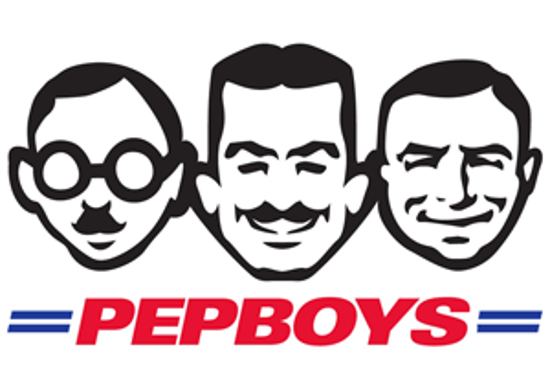Shipper | Case study
Intermodal accommodating growth
The challenge
The Pep Boys – Manny, Moe & Jack (NYSE: “PBY”) began operations in 1921 when four Navy buddies pooled together $800 to open a single auto parts supply store in Philadelphia. This venture blossomed into the multi-billion dollar national chain it is today offering automotive service, tires, parts and accessories in more than 700 stores in 35 states and Puerto Rico.

Over the past 90 years, Pep Boys has expanded its business model and provides a variety of automotive repair services at its Supercenters and Service & Tire Centers. The Pep Boys’ store model has proven extremely successful. Since 2008, Pep Boys has added more than 200 store locations, most of which are Service & Tire Centers.
Three years ago, under the new leadership of Mike Odell, president and CEO, and in anticipation of additional growth, Pep Boys recognized that it would need a better, more robust transportation program to move tires from suppliers to its warehouses. Rising fuel prices and shortages of drivers and equipment in the trucking industry were also on the horizon, and the company knew major adjustments were needed so it could be better positioned to accommodate its expanding business. Intermodal was seen as a viable alternative – but only if Pep Boys could find the right service providers to meeting it 98 percent on-time performance (OTP) requirement.
The solution
As leaders in the transportation market, BNSF Railway and Schneider are known for their service and experience. Both were well-positioned to address Pep Boys’ challenge.
In 2009, when Pep Boys put out the word it was interested in finding a domestic intermodal partner, Schneider took the lead, showing the retailer that the two carriers were fully capable of handling all of Pep Boys’ intermodal freight – and could commit to its 98 percent OTP service requirement. Another selling point was that because Schneider owns its assets, the load processes – from pick up to delivery — would be simplified and, ultimately, would save Pep Boys money.
“We knew that we weren’t making the most of containerized intermodal, and that having an asset-based provider would allow us to pull unnecessary costs, such as per diems and ramp demurrage, out of our transportation expenses,”
Josh Dolan, Director of Global Logistics & U.S. Customs Compliance for Pep Boys
No further convincing was needed; Pep Boys awarded 99 percent of its intermodal business to Schneider and BNSF, beginning with about 20 loads a week.
Another of Pep Boys’ requirements was load acceptance – whether it was for two loads or 50 – and on short notice, a challenge since Pep Boys’ major tire supplier is not close to rail hubs. “Since taking on this business, we’ve met this requirement with a 100 percent load-acceptance rate,” said Rich Sosna, Intermodal Sales Manager for Schneider.
The results
In addition to consistently meeting Pep Boys’ on-time performance and load- acceptance requirements, Schneider and BNSF have also helped Pep Boys realize significant cost savings in their transportation budget by using intermodal. That combination has been the foundation for Pep Boys’ increased reliance on intermodal. Since choosing the Schneider/BNSF solution in 2009, Pep Boys has increased its loads from 20-25 a week to 30-32 a week, now in 20 different lanes.
Ongoing communication has also been key to this successful relationship. When portions of BNSF’s rail network succumbed to rising waters during the summer floods of 2011, Pep Boys maintained complete visibility of its freight. Schneider kept Pep Boys informed of the rerouted trains and made suggestions for ways to expedite in-bound merchandise deliveries.
“We look for consistency, both in service and communication,” said Dolan. “Schneider and BNSF not only give us that, but they also help us with collaborative planning.”
Solid communication among all parties has been the catalyst in providing Pep Boys with a range of flexible and creative transportation solutions, which is a hallmark BNSF’s Next Generation Intermodal service.
“That collaboration is important. When opportunities present themselves, we need people who are willing to share their ideas with us. BNSF is good at that.”
Josh Dolan
Next steps
With more growth expected and expansion into new markets, Pep Boys believes the relationship it has with Schneider/BNSF will help the company stay ahead of the competition. The flexibility, reliability and visibility of BNSF's Next Generation Intermodal concept should continue to serve Pep Boys well.

“We have aggressive growth planned in the next few years, especially on the tire service front,” Dolan said. “The relationship we have with Schneider/BNSF will continue to play a large role.”
Drive your business forward
Sign up to receive our industry leading newsletter with case studies and insights you can put to use for your business.












